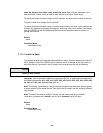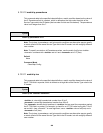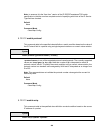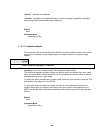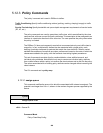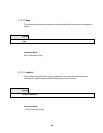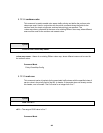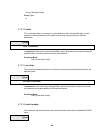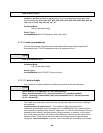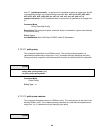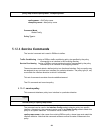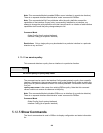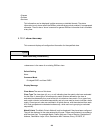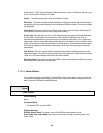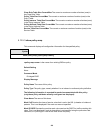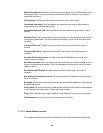
269
mark ip-dscp <value>
<value> is specified as either an integer from 0 to 63, or symbolically through one of the
following keywords: af11, af12, af13, af21, af22, af23, af31, af32, af33, af41, af42, af43, be,
cs0, cs1, cs2, cs3, cs4, cs5, cs6, cs7, ef.
Command Mode
Policy-Class-Map Config
Policy Type In
Incompatibilities Mark IP Precedence, Police (all forms)
5.12.3.9 mark ip-precedence
This command marks all packets for the associated traffic stream with the specified IP
Precedence value. The IP Precedence value is an integer from 0 to 7.
Syntax
mark ip-precedence <0-7>
Command Mode
Policy-Class-Map Config
Policy Type In
Incompatibilities Mark IP DSCP, Police (all forms)
5.12.3.10 police-simple
This command is used to establish the traffic policing style for the specified class.
Syntax
police-simple {<1-4294967295> <1-128> conform-action
{drop | set-cos-transmit <0-7> | set-prec-transmit <0-7> | set-dscp-transmit
<value> | transmit} [violate-action {drop | set-prectransmit <0-7> | set-dscp-transmit
<0-63> | transmit}]}
The simple form of the police command uses a single data rate and burst size, resulting in
two outcomes:
<conform-action & violate-action> The conforming data rate is specified in
kilobits-per-second (Kbps) and is an integer from 1 to 4294967295. The conforming burst
size is specified in kilobytes (KB) and is an integer from 1 to 128. For each outcome, the only
possible actions are drop, set-dscp-transmit, set-prec-transmit, or transmit. In this simple
form of the police command, the conform action defaults to transmit and the violate action
defaults to drop. These actions can be set with this command once the style has been
configured. <set-cos-transmit>, an priority value is required and is specified as an integer



